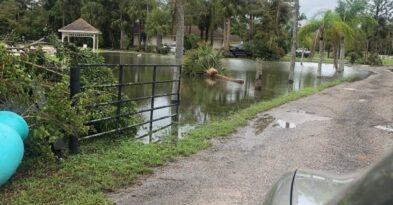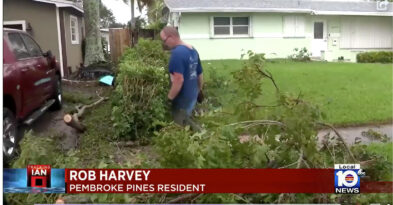Bad Faith Insurance and What You Should Know

When you pay for homeowner’s insurance, you are given the expectation that should anything happen, you will be covered and reimbursed by your chosen insurance company if necessary. Now while the insurance company is not required to compensate every single policyholder that files a claim, they are required to review each case and determine whether the circumstances match the client’s policy. In cases where they deny or underpay an insurance claim that clearly should’ve been covered (claim matches the covered policy, no insurance coverage limit was reached, filed under the deadline, etc), this is what is known as “bad faith”.
What is Bad Faith, and Why You Should Care
How Bad Faith Claims Punished Insurance Companies
When an insurance company wrongfully treats an insurance claim, this was known as “bad faith”, and this wasn’t a term to be taken lightly. Before early 2023 (technically really late 2022), if it could be proven that an insurance company denied or underpaid a claim, they could be taken to court over it, and not only would they have to pay the policyholder what they originally owe, but they would have to pay for that client’s attorney fees as punishment for not paying properly in the first place!
This punishment was a way of keeping the insurance companies in check, and it allowed for clear cases of bad faith to be addressed at no real cost to the policyholder while the insurance provider got the slap on the wrist that they deserved. This is extremely important for the state of Florida, where yearly hurricanes are abundant and homeowner’s insurance already has the highest rates, to a point that 13% of the population either can’t pay it or chooses not to rather than the national average of 7%. Having this as a means of combating unfair insurance practices was an extremely big deal, which brings us to our next question:
What Happened to Bad Faith Claims?
In December 2022, Florida Statute 627.428 was repealed, which is what made the insurance companies pay for the attorney’s fees of the policyholder should they be found guilty of bad faith. This change was made by the passing of Senate Bill 2A which sought to lower the strain property insurance companies were receiving from having to reimburse a great number of clients. In other word’s, insurance providers were no longer required to pay for the attorney’s fees of the policyholder.
What Does This Change Mean For Insurance Policyholders?
Now that the insurance provider doesn’t have to pay for their client’s attorney’s fees, what does the policyholder stand to gain in a bad faith case? Prior to the removal of Florida Statute 627.428, the only other fee the insurance provider had besides the attorney’s fees… was exactly the amount they were supposed to pay in the first place.
Let’s give an example to help explain why this change hurts the policyholder and gives the insurance provider far too much leeway. Let’s say your windows were damaged during a hurricane. It hurts to see your house like this, but then you remember “Aha! I can use that expensive homeowner’s insurance policy I pay for!” Now, whether you get an estimate by an expert or somehow know the cost yourself, let’s say you find that the cost for the window repair will be $15,000, but your insurance company only pays you $3,000. Your claim was filed quickly and is clearly covered by the policy you paid for, so after consulting a homeowner’s insurance lawyer, you come to the conclusion this is “bad faith”! Now you can argue with the insurance company all you like, but unless you lawyer up, you won’t be able to get the $15,000 you need.
Even after winning the case, the minimum amount the insurance company will be required to give is the $15,000 they were supposed to give in the first place! With the attorney’s fees that are now no longer covered by them, you are left at a loss because an insurance company decided to withhold the payment they owe. Currently, the amount of denied homeowner’s claims in Florida is 18 TIMES the national average.
Not only is there currently NO punishment for any insurance provide that practices in “bad faith” but the rate at which they are denying claims is continuing to increase. This might sound discouraging, but until something can be done to reinstate Florida Statute 627.428 or something of the same effect, you shouldn’t ignore clear signs of insurance providers practicing in bad faith.
What Can the Fischetti Law Group Do For You Against This?
OWhile our firms still charges attorney’s fees, we offer decent rates that be negotiated depending on your case. Our firm offers FREE consultation, so if you want to know if your insurance provider is guilty of “Bad Faith” and what our rates would be, don’t hesitate to call us at 833-MIKE-247. You can also visit our Contact Page or Location.








